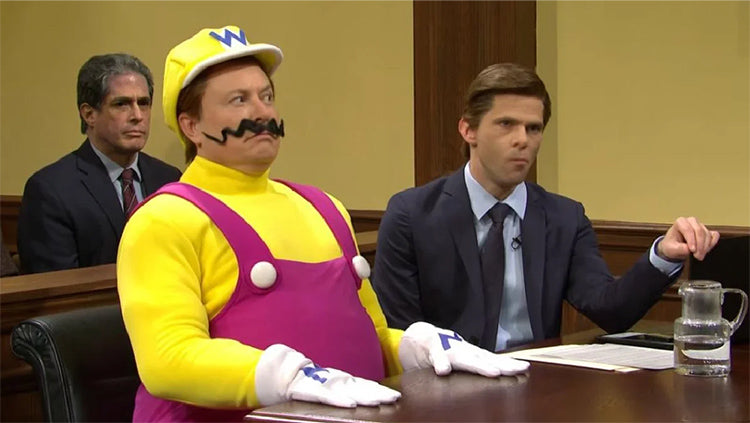A recent article by the New York Times reminded the internet that Elon Musk – the wealthiest person in the world – has an obsession with comedian Nathan Fielder. Fielder has been invited to spend time with Musk on several occasions, with Musk reportedly trying his hardest to make the comedian laugh. As an aside, a new video of Nathan Fielder looking miserable at a baseball game potentially adds him to our recent list of comedians who love the Mets.
For many, this is a weird example of worlds colliding. Musk is a playboy, a tech giant, internet troll, and a frequent political foil. Fielder is a deadpan comedian who spoofs businessmen like Musk and blurs the audience’s understanding of what is real and what is not. The relationship, if it can be called that, seems bizarre.
In fact, Musk surrounds himself with comedians, and has done his best to be “in” with the comedy crowd. This comes through in his appearances on Rick and Morty and Saturday Night Live, friendship with several comedians in the Joe Rogan sphere, and his social media personality.
Musk’s Twitter presence is often defined by memes and jokes. His page looks a lot less like that of a typical business and tech leader and more like the page of a comedian or Internet personality. It’s clear that he would like to be seen as siding more with the latter than the former. The Times article dives into some evidence for why he does these things. They document how Musk has expressed intense feelings of loneliness, and that friends have often observed him trying his best to make people – not just famous comedians – laugh.
This reflects a trait that comedians will often admit about themselves. Trying to be funny comes from a place of trying to connect with people, to wrest some attention and affection from strangers. In this way, this analysis of Musk is in tune with the desire of a lot of people who try their best to make others feel that they are funny.
For Musk, however, there may be something more to the desire to be on the side of the comedians in American culture. Comedians are often the most keyed in with up-and-coming cultural trends. It reflects their ability to shape and define movements as they come about. Also, a lot of times comedians are seen as sorta cool. Obviously this is a comedy website and we have our biases. But we can agree that successful comedians are often embraced by certain groups, as that’s part of their appeal.
It comes from the perception of comedians as truth tellers. They’ll say the things some of us might be too afraid to say, or not articulate enough to put into words. And they’ll say it in a way that can have a real impact.
This is a wave that Musk wants very much to ride. Musk has long been perceived as the “cool” rich guy for many. He was the inspiration for Robert Downey Jr.’s portrayal of Iron Man, after all. As big comedians seemed to embrace him into their fold, he earned some legitimacy in the eyes of their fans. This guy isn’t a distant, cold, oligarch. He likes the same stuff we do! He’s funny! See guys!
Since so much of Musk’s success comes from his public image, it makes sense that he would find a way to connect with people through comedy. It seems likely that some of it comes from simply wanting the cool guys to be your friends. Musk, like many tech gurus, grew from an ostracized loser into the center of attention in adulthood. But the power of being accepted by this particular group is relevant, and it may be something that Musk is very much aware of.

